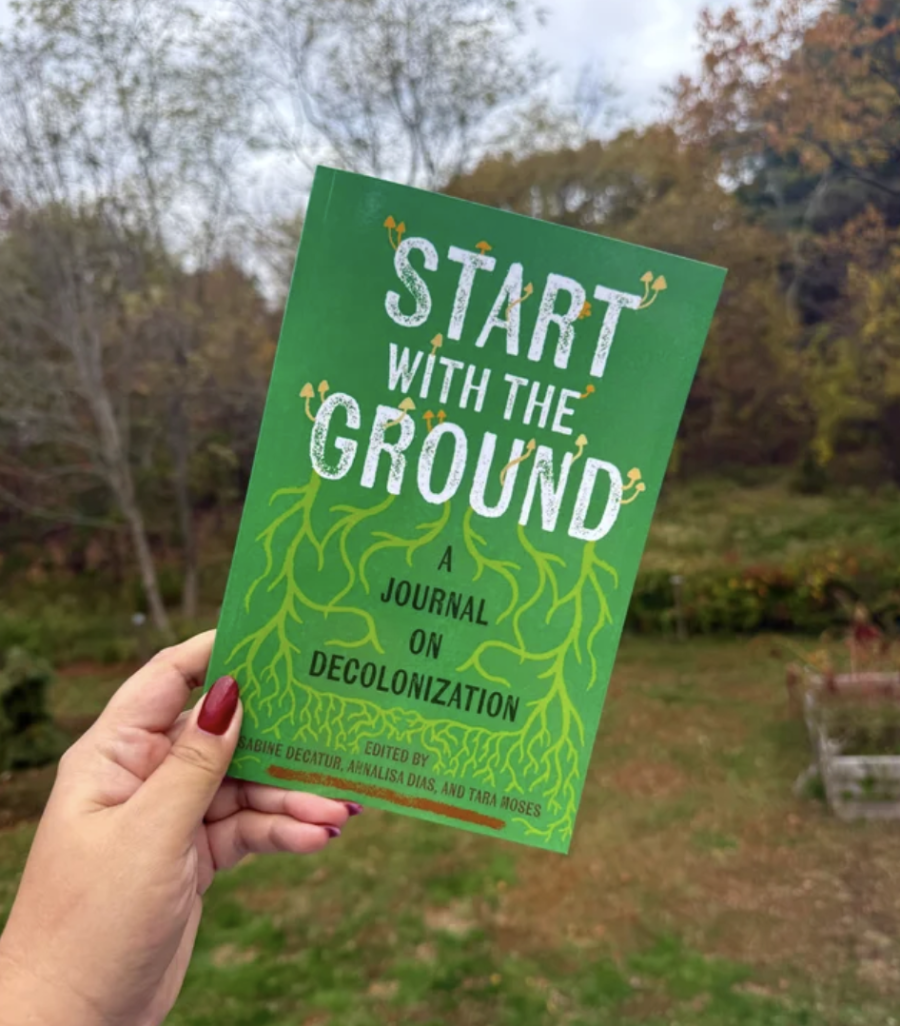Indigenous efforts to gain recognition and rights protection from inter-governmetal bodies began in earnest after World War I. In the 1920s, a delegation of indigenous people from Canada led by Haudenosaunee Cayuga Chief Deskaheh approached the League of Nations to plead their case for treaty rights of self-government. While the matter was taken up by the League’s General Secretary and supported by a handful of states, Britain removed the question from the League’s agenda on the grounds that it was an “internal affair.” Similar attempts after 1945 to engage the United Nations also were unsuccessful. Nor did state attempts to focus attention on indigenous issues fare any better: a Bolivian government initiative in 1948 to create a sub-commission to study the social problems of aboriginal populations also went nowhere.
On the other hand, over the years the United Nations and its Specialized Agencies have addressed some situations which affect indigenous peoples as part of their overall human rights activities. The concerns of indigenous peoples appear in a number of international instruments and studies, and in the early activities of U.N. human rights bodies dealing with minorities, slavery, servitude, and forced labor. In 1959, the International Labor Organization (ILO) adopted Convention 107 Concerning the Protection and Integration of Indigenous and other Tribal and Semi-Tribal Populations in Independent Countries, the first international treaty that specifically focused on problems faced by indigenous peoples. In 1989, the ILO adopted a second treaty, the Convention Concerning Indigenous and Tribal Peoples (or Populations) in Independent Countries, which aims to rectify the assimilationist orientation of ILO 107. Unlike its predecessor, ILO 169 recognizes the importance of indigenous control over their institutions, ways of life, and economic development, and the need of indigenous communities to maintain and develop their identities, languages, and religions.
In 1970, the Sub-Commission on the Prevention of Discrimination and Protection of Minorities recommended that a comprehensive study be made of the problem of discrimination against indigenous populations. In 1971, Jose R. Martinez Cobo of Ecuador was appointed Special Rapporteur for the study. He was charged with recommending national and international measures for eliminating such discrimination, and submitted his final report during the years 1981 to 1984. The report addressed a wide range of issues including the definition of indigenous peoples, the role of intergovernmental and non-governmental organizations, the elimination of discrimination, and basic human rights principles, as well as special areas of action in fields such as health, housing, education, language, culture, social and legal institutions, employment, land, political rights, religious rights and practices, and equality in the administration of justice.
Working Group on Indigenous Populations
Martinez Cobo’s study, the interest generated in the Sub-Commission on Prevention of Discrimination and Protection of Minorities, and the support of non-governmental organizations (NGOs) led in 1982 to the creation of the Working Group on Indigenous Populations (WGIP) by the Economic and Social Council. The WGIP is a subsidiary organ of the Sub-Commission. Its five members—one from each geopolitical region of the world—are independent experts and members of the Sub-Commission. States, U.N. bodies, NGOs, and representatives of indigenous peoples and their communities participate as observers. The WGIP meets in Geneva for one week immediately prior to the annual session of the Sub-Commission, and makes recommendations to its parent body. The Working Group is mandated to:
- Review developments pertaining to the promotion and protection of the human rights and fundamental freedoms of indigenous populations
- Pay special attention to the evolution of standards concerning the rights of indigenous populations
The Sub-Commission reviews the annual reports of the WGIP and acts on its recommendations under an agenda item titled “Discrimination Against Indigenous Peoples.” The Commission on Human Rights, in turn, considers the Working Group’s reports together with the reports of the Sub-Commission. In 1996, the commission included a new item on its agenda titled “Indigenous Issues.” One of the WGIP’s crowning achievements was the preparation of a Draft Declaration on the Rights of Indigenous Peoples, which subsequently was adopted by the Sub-Commission in 1993, and is now under review by the Commission on Human Rights.
International Year of the World’s Indigenous People
The need for a new approach to the issue of indigenous peoples was recognized by the General Assembly when in 1990 it proclaimed 1993 the International Year of the World’s Indigenous People. Indigenous peoples had, for many years, been calling for an international year to raise global awareness of their situation. At the opening ceremony in New York, indigenous peoples’ leaders spoke directly from the podium of the General Assembly for the first time in U.N. history.
The objective of the year was to strengthen international cooperation for the solution of problems faced by indigenous peoples in such areas as human rights, the environment, development, education, and health. The theme “Indigenous People—A New Partnership” was aimed at developing new and equitable relationships between the international community, states, and indigenous peoples based on the participation of indigenous people in the planning, implementation, and evaluation of projects affecting their living conditions and futures.
As part of the program of activities for the year, the Secretary-General opened a Voluntary Fund, which provided assistance to some 40 small-scale, community-based projects of indigenous people. Numerous other activities were funded directly by governments. The Secretary-General appointed Rigoberta Menchu Tum, winner of the 1992 Nobel Peace Prize, as Goodwill Ambassador for the Year.
United Nations Conference on Environment and Development
The Conference on Environment and Development held at Rio de Janeiro in June 1992 was an added important development for indigenous people in their relationship with the United Nations. The conference recognized that indigenous people and their communities have a vital role in environmental management and development because of their knowledge and traditional practices. It was stressed that national and international efforts to implement environmentally sound and sustainable development should recognize, accommodate, promote, and strengthen the role of indigenous people and their communities. Chapter 26 of the program of action adopted by the conference (Agenda 21) was devoted to indigenous people. Indigenous people met in one of the largest gatherings of its kind at the NGO Forum, which coincided with the Earth Summit and adopted their own declaration on the environment and development—the Kari-Oka Declaration. One of the outcomes of the Earth Summit was the signing of the Convention on Biological Diversity, which includes provisions specifically concerning indigenous people.
World Conference on Human Rights
In June 1993, the second World Conference on Human Rights was held in Vienna. Many hundreds of indigenous people attended and their representatives addressed the plenary session. In the Vienna Declaration and Program of Action, which the World Conference adopted, the “inherent dignity and the unique contribution of indigenous people to the development and plurality of society” were recognized. The Vienna Declaration also reaffirmed “the commitment of the international community to their economic, social and cultural well-being and their enjoyment of the fruits of sustainable development.” The conference called upon states to “take concerted positive steps to ensure respect for all human rights and fundamental freedoms of indigenous people, on the basis of equality and non-discrimination, and recognize the value and diversity of their distinct identities, cultures and social organization.” The conference also recommended that an international decade of the world’s indigenous people be proclaimed and that consideration be given to the establishment of a permanent forum for indigenous people in the United Nations system.
International Decade of the World’s Indigenous People
Following a recommendation by the World Conference on Human Rights in 1993, the General Assembly proclaimed 1995-2004 the International Decade of the World’s Indigenous People. The goal of the Decade was to strengthen international cooperation for the solution of problems faced by indigenous people in such areas as human rights, the environment, development, education and health. One of the central objectives of the Decade is: “the promotion and protection of the rights of indigenous people and their empowerment to make choices which enable them to retain their cultural identity while participating in political, economic, and social life, with full respect for their cultural values, languages, traditions and forms of social integration.” Another central objective is the adoption of the United Nations Draft Declaration on the Rights of Indigenous Peoples.
In 1994, the General Assembly designated August 9 to be observed as International Day of the World’s Indigenous People every year during the International Decade.
As the International Decade draws to a close, many indigenous people have called for a second decade to continue the work achieved during the first decade and carry out or complete the work that has not yet been accomplished. A report by the Secretary General surveying the activities of the United Nations system in relation to the Decade found that “despite the important institutional developments that have taken place in the framework of the Decade, indigenous peoples in many countries continue to be among the poorest and most marginalized.” In July 2004, ECOSOC unanimously recommended to the U.N. General Assembly that it declare a second International Decade of the World’s Indigenous People after the conclusion of the current decade at the end of 2004.
Working Group on the Draft Declaration on the Rights of Indigenous Peoples
In 1995, the Commission on Human Rights established the Working Group on the Draft Declaration (WGDD) and mandated that it complete a Draft Declaration for consideration and adoption by the General Assembly during the International Decade of the World’s Indigenous People. The Working Group is composed of representatives of states, though the Commission on Human Rights established procedures to enable indigenous people and organizations to participate in the Working Group’s deliberations.
As of January 2004, the WGDD had reached agreement on only two of the draft declaration’s 45 articles. ECOSOC subsequently approved funding for two additional meetings of the WGDD during 2004 in an effort to realize this objective before the International Decade comes to a close on December 31.
Special Rapporteur on the Situation of the Human Rights and Fundamental Freedoms of Indigenous People
The Special Rapporteur is an independent expert first appointed by the Commission on Human Rights in 2001. The Special Rapporteur is mandated to:
- Gather, request, receive, and exchange information and communications from all relevant sources, including governments, indigenous people themselves, and their communities and organizations, on violations of their human rights and fundamental freedoms
- Formulate recommendations and proposals on appropriate measures and activities to prevent and remedy violations of the human rights and fundamental freedoms of indigenous people
- Work in close relation with other special rapporteurs, special representatives, working groups, and independent experts of the Commission on Human Rights and of the Sub-Commission on the Promotion and Protection of Human Rights
The Commission named distinguished Mexican anthropologist Rodolfo Stavenhagen as its first Special Rapporteur and renewed his mandate in 2004.
United Nations Permanent Forum on Indigenous Issues
Following the recommendation by the World Conference on Human Rights that the General Assembly consider the establishment of a permanent forum for indigenous people in the United Nations system, a workshop was held in June 1995 in Copenhagen. Participants included 21 representatives of governments, 21 delegates from indigenous peoples, and two independent experts. The issues discussed were the scope of a permanent forum, the United Nations body to which the proposed forum would report, the mandate and terms of reference, the activities it might undertake, membership and indigenous participation, the relationship with the Working Group on Indigenous Populations, and financial and secretariat implications
In April 2000, the Commission on Human Rights adopted a resolution to establish the Permanent Forum on Indigenous Issues. Three months later the Permanent Forum came into formal existence when ECOSOC endorsed the resolution. The Permanent Forum is a subsidiary organ of ECOSOC and consists of 16 members. Eight members are nominated by governments and elected by ECOSOC, while the other eight members are appointed by the president of ECOSOC following broad consultations with U.N. staff and indigenous organizations. States, U.N. bodies, intergovernmental organizations, NGOs, and indigenous organizations may participate in the work of the Permanent Forum as observers.
The purpose of the Permanent Forum is to serve as an advisory body to ECOSOC. Its mandate is to discuss indigenous issues relating to economic and social development, culture, the environment, education, health, and human rights. In so doing, the Permanent Forum is meant to:
- Provide expert advice and recommendations on indigenous issues to ECOSOC, as well as to programs, funds, and agencies of the United Nations, through ECOSOC
- Raise awareness and promote the integration and coordination of activities relating to indigenous issues within the U.N. system
- Prepare and disseminate information on indigenous issues
The Permanent Forum meets once a year for 10 working days and submits an annual report to ECOSOC on its activities, including any draft decisions for ECOSOC approval.
Voluntary Fund for Indigenous Populations
In 1985, the General Assembly established the United Nations Voluntary Fund for Indigenous Populations. The fund provides financial assistance to representatives of indigenous communities and organizations to enable them to attend sessions of the Working Group on Indigenous Populations. The fund is administered by the U.N. Secretary-General with the advice of a five-member Board of Trustees, which meets annually to review applications for assistance. The fund relies on contributions from governments, non-governmental organizations, and other public and private entities, and provides travel grants to about 40 representatives of indigenous peoples every year. In December 1995, the General Assembly extended the scope of the Voluntary Fund for the purpose of also providing financial assistance to representatives of indigenous peoples’ organizations to participate in the work of the Working Group on the Draft Declaration.
Voluntary Fund Relating to the International Decade of the World’s Indigenous People
A special fund—the Voluntary Fund for the International Decade of the World’s Indigenous People—was established by the General Assembly for the purpose of financially assisting projects and programs during the Decade.
Trust Fund in Support of the United Nations Permanent Forum on Indigenous Issues
Following a request by the General Assembly, the Secretary-General established the Trust Fund in support of the United Nations Permanent Forum on Indigenous Issues in July 2003. The voluntary contributions are to be used for funding the implementation of recommendations made by the forum to ECOSOC, as well as funding activities under the mandate of the Permanent Forum.
World Bank Global Fund for Indigenous Peoples
The Global Fund for Indigenous Peoples was established by the World Bank in 2003 to provide support for strengthening the Permanent Forum on Indigenous Issues and a targeted pilot program of capacity-building for indigenous leaders in the Andean region of South America. It also includes a grants facility that provides grants to indigenous organizations worldwide for a range of development-related activities. The World Bank plans to mobilize internal resources as well as seek external resources to support grant-making for the second and third years of the grants facility. The Bank intends to transfer the grants facility to an appropriate organization after the third year. It should be noted that administrative difficulties caused an early promise of financial support for the Permanent Forum to be withdrawn.
Subsequent World Conferences
Subsequent high-level conferences, including the International Conference on Population and Development (Cairo 1994), the World Summit for Social Development (Copenhagen 1995), the Fourth World Conference on Women (Beijing 1995), and the United Nations Conference on Human Settlements (Habitat II) (Istanbul 1996), have all made recommendations relating to indigenous people. The World Bank has also recognized the need to protect indigenous peoples and, in September 1991, adopted Operational Directive 4.20 to set out policies and procedures for projects affecting them. The directive provides policy guidance to ensure that indigenous peoples benefit from development projects and to avoid potentially adverse effects on them.
References and further reading
Office of the High Commissioner for Human Rights (1997, July). The Rights of Indigenous Peoples. Fact Sheet No. 9 (Rev.1).
Report of the Secretary-General. Social and Human Rights Questions: Permanent Forum on Indigenous Issues—Mechanisms, Procedures Within the United Nations Concerning Indigenous Issues. Unedited advance copy, Economic and Social Council, Substantive session of 2004.
Thornberry, P. (2002). Indigenous Peoples and Human Rights. Manchester: Juris Publishing.



